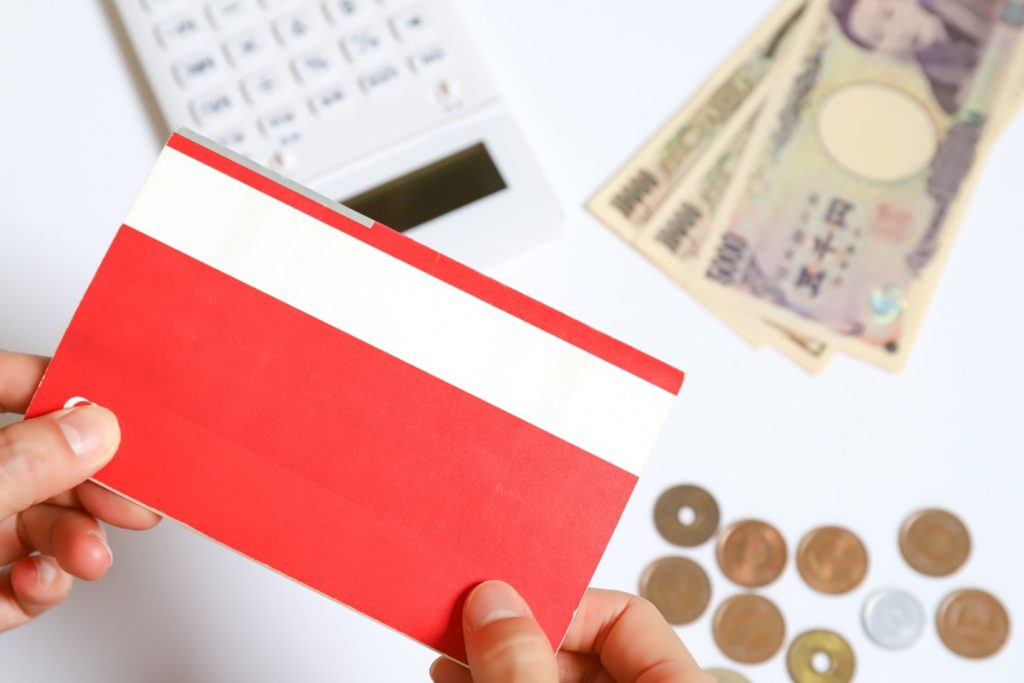The longer you live abroad, the more vested you become in the economic stability and success of the country you now call home. Having lived in Japan since 2009, my livelihood is firmly rooted here, and I can’t help but be intrigued by Japan’s unique economic situation.
After briefly exploring how the current wave of global inflation has impacted Japan, my curiosity only grew, and I wanted to capture the thoughts of an expert in the field. Thankfully, Richard Katz—a Japan-focused economist, author, and journalist—was willing to answer my questions about inflation, economic growth, and the politics that tie everything together.
History, Economics, and Inflation
You’ve written two—going on three—books and countless articles on the Japanese economy. What led you to focus your writing and reporting on Japan?
I was attending Columbia University during the Vietnam War, and I took a seminar on Japanese modern history. Japan turned out to be fascinating—it was so dramatic. Japan’s history is like a soap opera with so many ups and downs.
The reason I mentioned the Vietnam War is that Japan is the only country in Asia, aside from Thailand, that escaped colonization by Western imperialists. In particular, Japan did so by rapidly modernizing in the Meiji Era, and that was fascinating.
It was also the time when the U.S.-Japan trade conflicts were taking off. I had both a history and an economics bent, so that too was interesting. After college, I wasn’t exactly sure what I wanted to do—I didn’t want to go to graduate school at that point. So, I started doing freelance writing for Japanese publications about U.S.-Japan relations while also working part-time. I wasn’t making enough money doing that, so I went back to school, got my graduate degree in economics, and the rest is history.
Rising food and energy prices could be the leading edge of inflation that will increase and spread to other item categories, or these price increases could just be the result of temporary factors.
Speaking of economics, you recently wrote that Japan’s current inflation rates may not be as high as they seem. However, Japanese consumers are dealing with significant price increases for food and energy. How will this recent spike in inflation play out?
If you’re a consumer, what you care about is the prices for all the items you’re interested in. Some of the most visible items are rising in price the fastest: gasoline at the pump, heating oil, fuel for cooking, electricity, and food. Virtually all of the inflation in Japan is due to the rise of these import-intensive items, which account for a little less than 40% of all goods. The fall in the yen sends those prices upward.
Economists, however, want to tell how long the pain will last, and to see the underlying trend, they strip out the most volatile items, like food and energy. The prices for these core items—everything except food and energy—have barely increased since 2012.

Rising food and energy prices could be the leading edge of inflation that will increase and spread to other item categories, or these price increases could just be the result of temporary factors. We don’t know for sure, but I’m saying inflation is not as high as it seems because, so far, it’s almost entirely located in import-intensive items. And a lot of that inflation is due to the plunge in the value of the yen.
One of the things that inspired me to explore this topic is that during my 13.5 years in Japan, I recall only two noticeable, across-the-board price hikes, excluding the present one. These were sparked by the two consumption tax hikes during that period. It seems like consumers simply reduced spending after each increase, which prevented significant, sustained inflation. Do you see this third spike in prices playing out any differently than the previous ones?
We don’t know for sure, but there certainly could be lasting effects, just like in the past. Real—i.e., price-adjusted—consumer spending from January to March 2022 was no higher than it was during the same period in 2014, before the first of those two tax hikes. When you take away people’s money, whether it be through taxes, price hikes, or whatever, they have less money to spend. Additionally, the savings rate is now very low, so there’s less money to fall back on. The danger here is that this recent price increase will cause additional long-lasting damage to the Japanese economy. That danger needs to be addressed.
Are you saying this current round of higher prices isn’t going to help the Bank of Japan reach its 2% inflation target for a healthier economy? These recent price increases aren’t pushing us there because the wrong items are increasing in price. Is that correct?
Exactly. There’s good inflation and there’s bad inflation. Good inflation, as long as it’s not too high, is created domestically because you have full employment and full use of capacity. Up to 2% shows a vibrant economy. When inflation comes because you’re paying more for oil, food, and clothing, then it’s a bad thing because you’re really transferring income and wealth from Japanese households to foreign producers of those goods. Within Japan, there’s also a transfer of income from households to the big multinational Japanese corporations whose profits increase when the yen is cheaper because they can earn more on their exports. That’s not something that helps the average person in Japan.
Generating Economic Growth

Due, in large part, to a lack of wage increases, Japan’s economy has been relatively stagnant since 1990. What would it take to motivate Japanese corporations to finally start raising wages?
Well, I don’t think it’s a question of motivating them. They raise wages because either regulatory or market forces are compelling them to do so. For example, in a labor shortage, one would expect—by the law of supply and demand—wages to go up. And yet, they have not. A large part of that is because companies have been substituting full-time, high-paid workers with non-regular, part-time, and temporary workers who earn lower pay. They’re also bringing back older people and paying them less. They’re not going to raise wages just because the prime minister asks them to do so.
So, the question is: what would cause them to raise wages and what does the government have power over? One thing is the minimum wage. Raising the minimum wage has a tremendously powerful effect that people don’t realize. In addition to helping those who earn below the minimum, it also raises wages for people who earn 15 or 20% above the minimum. The minimum wage in Japan is 930 yen as a national average. The government wants to push it to 1,000 yen. But Japan’s 15 million part-time workers—about 25% of all employees—have an average hourly wage of 1,100 yen. It would be ideal if the minimum wage were raised to 1,150 yen to meet the international norm—half the median wage. Reaching this level would raise the wages of millions and millions of workers.
The other thing the government could do is enforce labor laws. Japanese law requires equal pay for equal work, not only between men and women but also between regular and non-regular workers. But there’s no government agency mandated to investigate violations of the law and to punish violators. If you are being paid unfairly, you have to take on the expense and burden of going to court yourself. And most of the time, the judges side with employers. If one job is just 2% different than another, that’s all it takes for a pay gap to be justified. The law needs to be clarified. The government could do this, but there’s no motivation because businesses big and small don’t want things to change. The Ministry of Health, Labour and Welfare has inspectors, but they don’t inspect this part of the issue.
Let me play devil’s advocate for a moment. A common argument against raising the minimum wage is that companies are just going to pass that expense back on to the consumer, which means workers will be right back where they started. What would you say to someone who would challenge a minimum wage hike on those grounds?
Actually, the more popular argument is that people who work for minimum wage work for businesses, like restaurants, that can’t pass prices on to the consumer. The idea is that a minimum wage increase is going to cost jobs because these businesses can’t pass down the costs. That is what economists thought 20 or 30 years ago. However, most modern studies, where we can compute much more data, indicate a negligible change in jobs—somewhere between a 1% decrease and a 1% increase. An increase can occur because some people who wouldn’t work before would decide to work when wages go up. Basically, if you raise the minimum wage at a gradual pace, the effect on jobs is negligible.
Even the International Monetary Fund, which is not known as a pro-worker organization, has come out and said that Japan needs to raise the minimum wage to boost consumer spending. A lot of economists recognize the argument that you’re citing as either obsolete or only true in principle, at an inconsequential magnitude.
That’s clear regarding job creation. However, regarding prices, are you saying that raising prices to compensate for a minimum wage increase wouldn’t significantly reduce consumer spending?
That’s right. In fact, this is a case that would result in a kind of good inflation. There’s one other thing to consider. What employers really care about is not the wage level but the actual cost of a worker. When workers are paid a low minimum wage, there’s an awful lot of employee turnover. The cost of training a worker, losing that worker, getting a new worker, and repeating that process two or three times a year—that’s equivalent to two or three months of pay, each time.
If you raise the minimum wage, instead of workers leaving every three, six, nine, or twelve months, they might stay for a couple of years instead. This cuts costs associated with hiring and training.
Are Startups the Answer?
The need for entrepreneurship exists, but the government is not really moving on it.
In a June 2021 Zoom presentation, you suggested that entrepreneurship and new SMEs [small and medium-sized enterprises] could be the key to reigniting Japan’s economy. More than a year later, do we have any new evidence that indicates whether entrepreneurship is a “false spring” or “real opportunity?”
It is a real opportunity. However, Japan has found a way to miss a lot of opportunities. One of the opportunities that’s happening right now is the establishment—the Liberal Democratic Party [LDP], Keidanren [Japan Business Federation], and so forth—actually beginning to recognize that they need entrepreneurship. Keidanren called for a tenfold increase in venture capital funding and wants to see 100,000 new startups in the next five years—although it’s not clear how they define a startup. So, the awareness of the need for entrepreneurship has changed in a genuine way. That’s the good news.
The bad news is that they seek tame entrepreneurs that won’t challenge them, which of course is not how entrepreneurs typically behave. The worst news of all is that Prime Minister Kishida is like a doctor who has given you a wonderful diagnosis but won’t give you the prescription for the medicine you need.
His Council of New Form of Capitalism Realization tasked the Council for Science, Technology and Innovation to come up with a report on Japan’s lack of entrepreneurship. This group consists of the best sort of bureaucrats, businesspeople, and entrepreneurs, and they produced a first-rate analysis. They wanted to include solutions as well, but they were told to hold off until after the Upper House election, then the end of the year, or perhaps even longer. The people I’ve talked to have hope—but they don’t have a lot of confidence that they’ll get anything other than the same response come the end of the year.
The need for entrepreneurship exists, but the government is not really moving on it. There are disagreements within the business community and within the ministries. Still, I find it encouraging that there are more people in the LDP, and even conservative business circles, that recognize the need for entrepreneurship. Additionally, some of these bureaucrats are so sharp and so dedicated to the real mission of helping Japan that they’re going to keep pushing for change. You also have entrepreneurs who created their own lobbying group, JANE [Japan Association of New Economy], and they’re moving into these circles. I would argue that Japan has the best political chance in a generation to make breakthroughs. It’s going to be an uphill climb, and that’s what my upcoming book is about.
Political vs. Societal Challenges
If you compare the U.S. and Japan, for instance, Japan’s problems are eminently solvable, except from the political standpoint.

What can other countries learn and apply from Japan’s economic strengths and weaknesses?
If you compare the U.S. and Japan, for instance, Japan’s problems are eminently solvable, except from the political standpoint. If they take the right measures, things could be fixed. The U.S., however, has a different set of problems. The lousy education that so many of our students receive generates a labor force without in-demand job skills. With the student debt problem, we’ve got people who have to drop out of college. We’re not investing in our future.
One of the things that Japan does well is providing a universal education. Now there are some problems with certain aspects of the teaching—there’s work to be done regarding skill building and creativity. However, they make sure everybody has a certain level of basic education. Japanese high school kids are among the best in the world. Then there’s healthcare. It’s egalitarian, which is one reason the average Japanese lifespan is so much longer than ours.
There’s also the American dream, where each generation is supposed to do better, and how well you’ll do in life depends not on what your parents did—not on their education or their job—but on your own drive, ambition, and inborn talent. Japan is much better in this regard. America is losing that dream, year by year. This is because of deep-seated social issues. You can have all the right policies in the world, but these issues are not easy to solve. The tragedy of Japan is that their problems are so much easier to solve, but yet they don’t solve them. The American tragedy is that our problems are really hard to solve, and we’re not even facing them. Instead, we’re just glaring at each other angrily.
Final Thoughts: The Economic and Geopolitical Future of Japan
Japan is capable because of the talent of its people. This is a case where the whole is so much less than the sum of the parts.
Considering the current economic situation as well as unresolved demographic and labor issues, what is Japan’s long-term economic outlook?
The answer to this question is in Japan’s hands. Japan is capable because of the talent of its people. This is a case where the whole is so much less than the sum of the parts. Really smart people are trapped in institutions that are too rigid, without enough chances for new companies to grow. The measures I gave you are eminently practicable. Raising the minimum wage and equal pay for equal work don’t require a social revolution. There’s nothing there that’s antithetical to Japanese culture. In fact, I’d argue that these ideas are actually harmonious with Japanese culture. The solutions are there, but there are political obstacles and ideological disagreements. The difficulty of a one-party democracy being responsive—that’s a serious problem. I can’t tell you what Japan will do. What I can tell you is that it’s in Japan’s hands—other countries can’t do these things for Japan.
If Japan makes the right choices, it will prosper and be a significant power in Asia, which would be a good thing for the standard of living within the country and for the peace, prosperity, and stability of the region. On the other hand, if Japan makes the wrong choices, or fails to make the right choices, we’ll see a continuing decline in living standards for a large share of the population. Also, Japan will play less of a role in the region. You can be Switzerland, not grow very much, and have a pleasant existence. However, Japan is not in the same geography as Switzerland. Japan is in a tough neighborhood with problems and instability. It’s a country with the heft, in line with other like-minded countries, to do things that would make China integrate as a responsible regional partner. If Japan can’t do this, then there’s no regional counterweight to China. This would be an unpleasant descent into low growth, making it even harder for Japan to deal with issues like its aging population. So that’s the situation, and I’m hoping that Japan will make the right choices.




